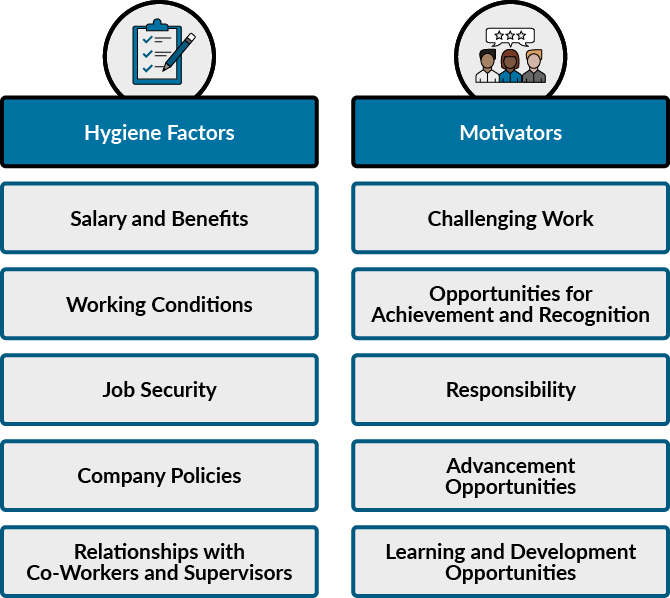Frederick Herzberg – Two-Factor Theory
Herzberg’s theory of motivation is also known as the Two-Factor Theory. According to Herzberg, two factors affect motivation and job satisfaction: hygiene and motivators.

Hygiene factors are basic requirements for job satisfaction. These factors are necessary for creating a comfortable work environment and preventing employee dissatisfaction. However, they do not necessarily contribute to job satisfaction or motivation. Examples of hygiene factors include
- Salary and benefits,
- Working conditions,
- Job security,
- Company Policies,
- Relationships with co-workers and supervisors.
If these factors are not met, employees can become dissatisfied with their job, but if they are met, employees are not necessarily motivated to perform better.
Motivators, on the other hand, are factors that lead to job satisfaction and motivation. They are related to the work and the opportunities for personal growth and development. Examples of motivators include:
- Challenging work
- Opportunities for achievement and recognition
- Responsibility
- Advancement opportunities
- Learning and development opportunities
Insert Video 9 Here
According to Herzberg, organizations should focus on providing motivators to their employees rather than just relying on hygiene factors to prevent dissatisfaction. This can lead to higher motivation and job satisfaction, leading to higher performance and productivity.
In the business world, this theory suggests that companies should strive to provide a comfortable work environment that meets basic needs (hygiene factors) and provides opportunities for personal growth and development (motivators). Companies can increase employee motivation and job satisfaction by focusing on these motivators, leading to better performance and productivity.